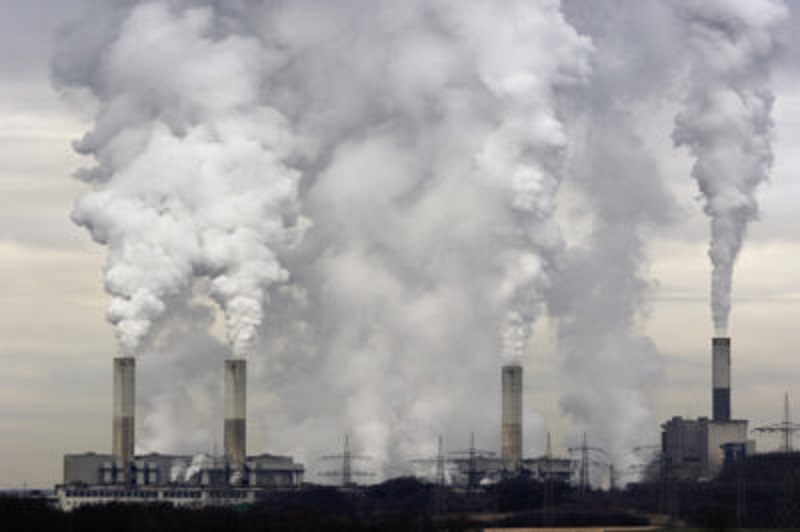Blue-Green Divide on Display as Workers Swarm Legislature to Oppose Coal Plant Shutdowns

Dozens of workers from coal-fired power plants spent Tuesday in the Senate Office Building letting lawmakers know they oppose a bill that would phase out the state’s six coal-fired plants.
After the Senate Finance Committee room filled, workers who didn’t make it inside waited hours in the hall.
They wanted to put faces to the hundreds of workers that would lose their jobs if the bill became law, said Jim Griffin, president of the International Brotherhood of Electrical Workers.
Coal-fired power plants are still operational in Allegany, Anne Arundel, Charles, Montgomery and Prince George’s counties.
But those plants produce less than 15% of Maryland’s electricity, while contributing more than 85% of the carbon pollution coming from the electricity sector, according to David Smedick of the Maryland Chapter of the Sierra Club. The coal plants’ emissions affect public health, especially the health of vulnerable populations.
Coal plants are closing across the nation. The six Maryland plants, despite being fully staffed year-round, have not operated a single day this year. Last year, the plants collectively operated only 17 days. They are projected to operate for 14 days in 2020.
Sen. Stephen S. Hershey Jr. (R-Upper Shore) says that’s the point: energy from coal is not used often, but is necessary when the other generating facilities can’t meet customer demand.
“The days that these plants run — and they are fewer than they were in the past — are huge insurance policies for not losing power, particularly for prolonged winter periods,” Mark Gouveia, senior vice president of Operations at GenOn Energy, which operates three of Maryland’s coal-fired power plants, told the committee.
Sen. Christopher R. West (R-Baltimore County), the measure’s Senate sponsor, said this is the right bill at the right time.
“These plants are going to close,” West said. “Whether they close tomorrow or three years from now, they are going to close. And this bill provides lots of benefits for the displaced workers. We need to enact this bill so that when they close, the workers are provided for.”
The bill would provide grants to coal plant workers to help them transition into new employment and supplemental retirement security to workers who are within three years of retirement. It would also give counties payments to offset tax revenue lost when plants close.
Money for the payments would come from the state’s Strategic Energy Investment Fund.
“Keep in mind that if a bill like this doesn’t pass, these jobs are going away over the next couple of decades or so anyways,” said House Environment and Transportation Committee Chairman Kumar P. Barve (D-Montgomery), the sponsor of the bill’s cross-file in the House. “If this bill doesn’t pass then there will be no efforts to help these workers retrain and move to similar jobs.”
Coal plant workers told the Senate committee that they wouldn’t be able to find jobs with the same salary and benefits.
“This is a lifelong career for most of us,” said Tom Glitcherman, manager of the H.A. Wagner Power Plant, and a second-generation coal plant worker. “I know for a fact that I won’t be able to find a job equivalent to this in this state if I lose my job in 2025. I will be forced to leave.”
The bill would require phasing out Chalk Point Generating Station (Prince George’s County), Dickerson Generating Station (Montgomery County) and H.A. Wagner Generating Station (Anne Arundel County) by Oct. 1, 2023. Morgantown Generating Station (Charles County) would be shut down by Oct. 1, 2024, Brandon Shores Generating Station (Anne Arundel) by Oct. 1, 2025, and Warrior Run Generating Station (Allegany) by Mar. 1, 2030 due to a 10-year federal contract.
“We want to do something that’s not too far in the future but also doesn’t provide market disruptions,” Barve said.
Smedick said that the dates are set within the next three to 10 years because the Intergovernmental Panel on Climate Change warned that wealthy nations need to cease burning coal by 2030 in order to meet climate targets and avoid a catastrophic environmental breakdown.
“At this point, it appears that the counties that are home to these power plants are either supportive or neutral,” Smedick said. “We are seeing a recognition on behalf of local government that this transition is necessary and timely.”
According to a poll conducted by the Maryland Sierra Club, seven in 10 Marylanders support the transition from coal-fired power plants. The poll also showed 80% of Democrats, 52% of Republicans and 68% of Independents who responded support moving away from coal.
“We see bipartisan support across the board for making this type of move,” Smedick said.
The bill’s cross-file will receive a hearing in the House Economic Matters Committee on March 5.



 Creative Commons Attribution
Creative Commons Attribution